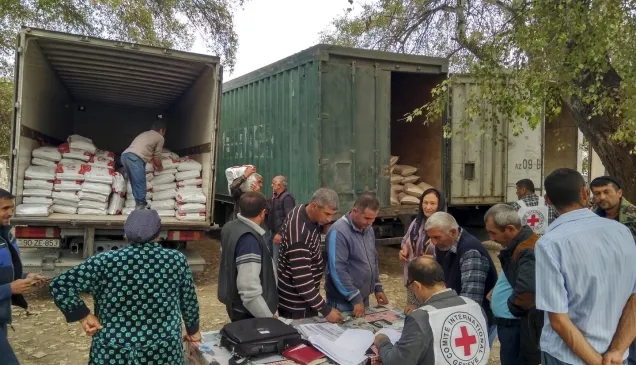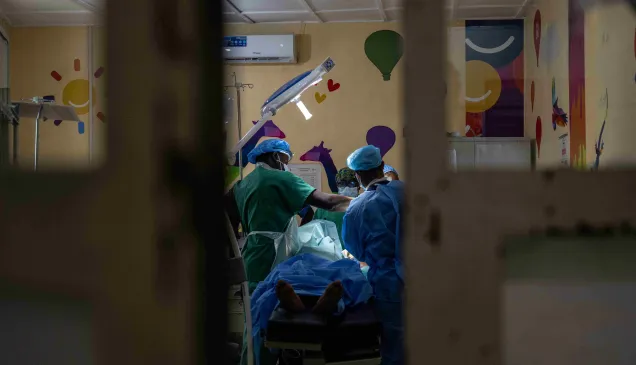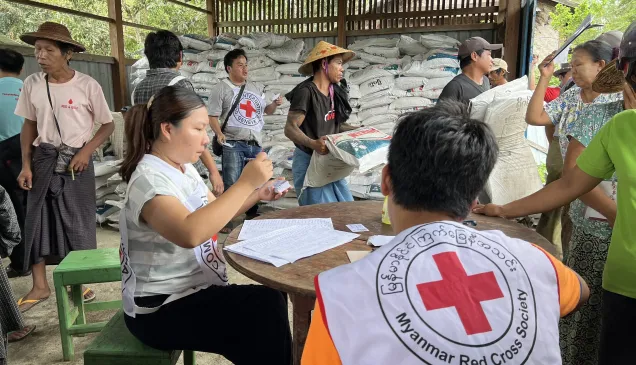“Our role as emergency nurses is very important as we actively participate in patients’ treatment. Following the triage system, we categorize patients based on their health conditions so that those who need urgent assistance are attended to first and sent to the doctor after primary checkup.
When the first COVID-19 patients in Cox’s Bazar came to us, I was afraid to treat them. But after the ICRC provided us with personal protective equipment, I served the patients without any fear. I live far away from my family and my landlord wanted to know if my flatmate and I were working with COVID-19 patients.
We did not tell him that my flatmate had tested positive. I did not visit my family for 4 months due to the fear of exposing them to the infection, until I got a negative PCR test.”
Bipasha Akter has been working as an emergency nurse at Cox’s Bazar Sadar Hospital for the past 5 months.
Bangladesh: Emergency nurses go above and beyond duty amid COVID-19
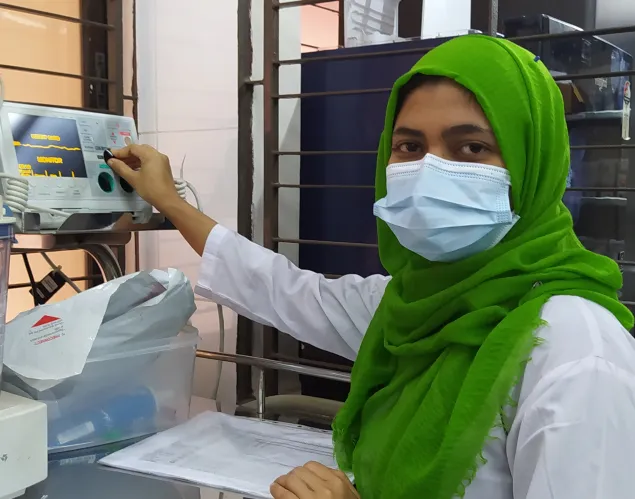
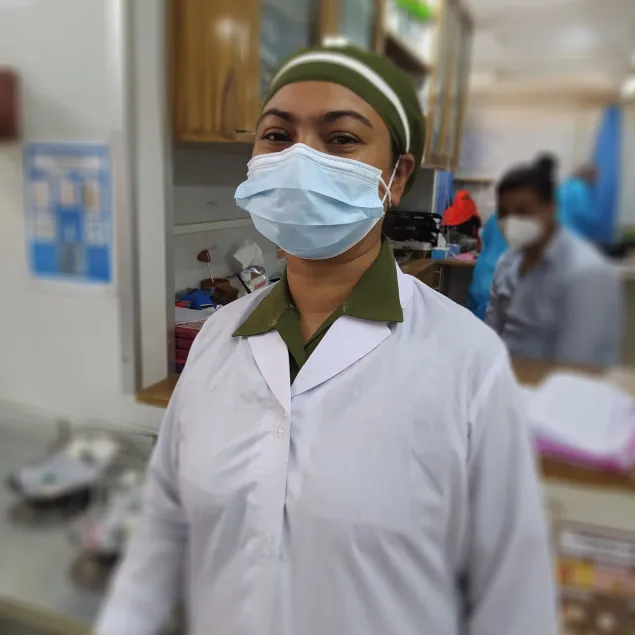
“I feel very happy when a patient's condition improves with the services we provide. Recently, a woman who had given birth at home was brought to our emergency department. She bled, and we could not save her life. Even though we have all the facilities in Bangladesh hospitals to ensure safe delivery, many women are still giving birth at home.
At the outset of the pandemic, we were scared because of the virus spread. But we have been serving COVID-19 patients since we are provided with PPE kit. Besides, I always follow safety guidelines. When I return home from the hospital, I maintain a safe distance from my children. I don’t tell my neighbours that sometimes we serve COVID-19 patients because they might panic.”
Nipa Paul has been working at the emergency department of Cox’s Bazar Sadar Hospital for 9 months, and as a nurse at the public hospital since 2013. She has been in the nursing profession for 17 years.
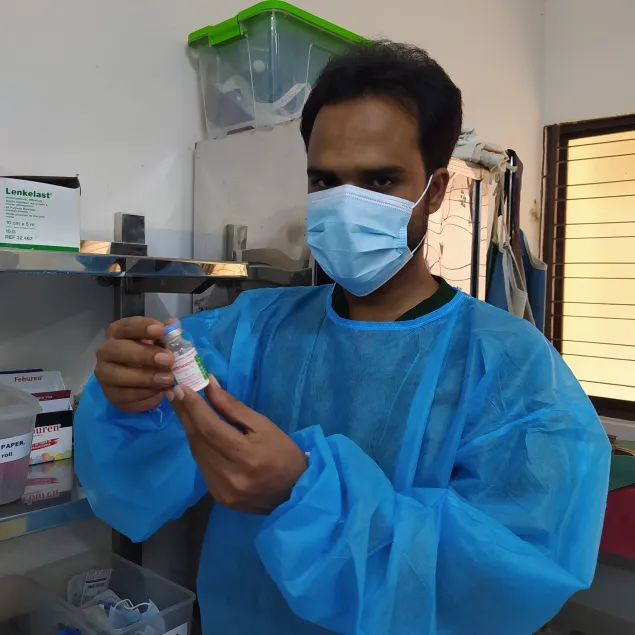
“In our emergency department, we serve both COVID-19 and non-COVID-19 patients. No one returns home without getting treatment. I was COVID-19 positive, but I did not need to be hospitalized and I’ve recovered while in home isolation. My wife is also a nurse, so she understands my reality. But my family members were worried.
I did not see my family for seven months. I had to accept it due to the situation in the country.
Our main challenge is winning people’s trust. With respect to the triage system, we explain to them why we must provide treatment to somebody else before them. It’s not ‘first-come-first-serve’ at the hospital.
Sometimes, they get angry at duty nurses, and we might even face physical assault and abuse from patients and their relatives, which are a security threat to us.”
Shafiqul Islam has been an emergency nurse at Cox’s Bazar District Sadar Hospital’s emergency department since its renovation by the ICRC in July 2019. He's been in the nursing profession for 5 years.
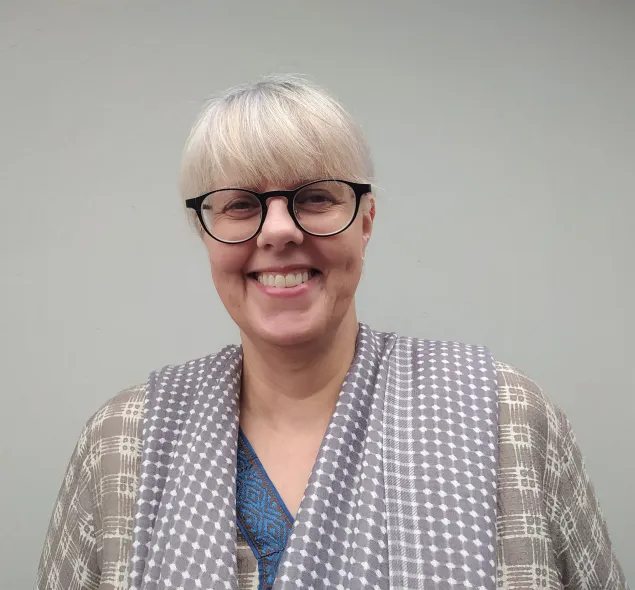
“Nurses have heeded the calls to return to the clinical areas to support current staff with the increased burden of patients. They have also often sacrificed time with families, sometimes living away from them to protect them from potential exposure to the virus that they themselves may get exposed to during their work.
Nurses, in cooperation with all other health-care workers like cleaners, porters, doctors and the hospital managers, have risen to the challenge of the pandemic. Teams have put systems in place to help reduce the spread, i.e. physical distancing, wearing masks, staying at home where possible, contact tracing, etc.”
Lynette Cheverall, Specialist nurse, Emergency / Emergency Department Support (EDS) Project, Cox’s Bazar
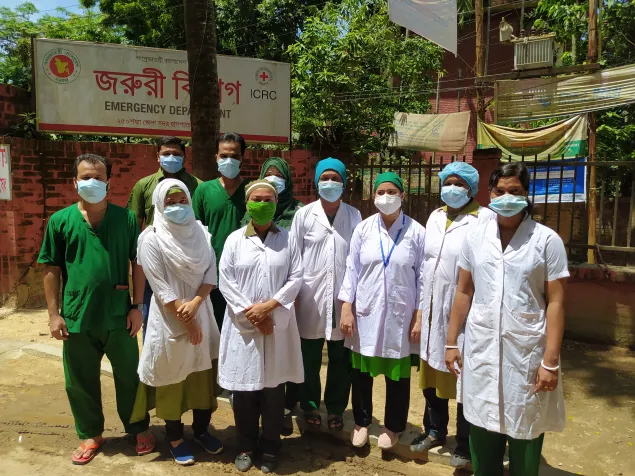
The dedicated nursing team that been taking care of patients in Cox’s Bazar, including the host communities and displaced people from Rakhine
The COVID-19 pandemic has brought forth some extreme realities for the nurses worldwide. As a community, nurses have come forward and put themselves on the front line, providing care to those who need it the most, often putting themselves at risk.
While they have been honoured and celebrated by certain communities, they have also faced stigma and abuse because they are more exposed to the dangers of COVID-19.
Low number of nursing staff, limited resources, paltry salaries and a lack of recognition have always created additional challenges for nurses. But they have taken it in their stride and continued to provide the best service to the communities they serve.
In Bangladesh, the Emergency Nurses Week was celebrated for the first time at the ICRC-supported Emergency Department of Cox's Bazar District Sadar Hospital, to pay tribute and recognize the nurses' contribution to the health and well-being of the community.

